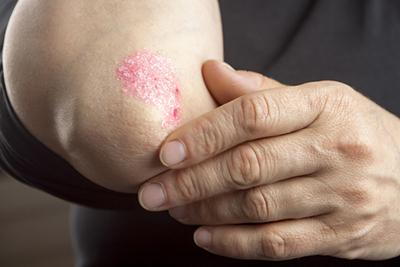
The chronic autoimmune condition known as psoriasis primarily impacts the skin. While its exact cause remains not fully understood, it is thought to be related to combined genetic and environmental factors. According to the dermatological experts at Dawson Dermatology in Honolulu, HI, a psoriasis flare-up, which can be triggered by various factors, is characterized by the rapid buildup of skin cells, forming scaly patches on the skin.
Common Psoriasis Flare-Up Triggers
While the following are common flare-up triggers for psoriasis, not all individuals will experience the same symptoms or symptom intensity -
Stress/Anxiety
Emotional stress, typically associated with anxiety and life factors, is often a trigger for flare-ups. This is because stress stimulates an immune response, which causes inflammation and more severe psoriasis symptoms.
Infection
Infections, especially those attributed to streptococcal infections, can potentially trigger and even worsen psoriasis symptoms. Treat infections quickly if you have psoriasis.
Weather/Climate Conditions
Excessive sun exposure, as well as cold, dry weather, can exacerbate psoriatic symptoms.
Skin Injuries
Physical trauma, which may include a burn, a cut, or even surgery, can trigger psoriasis. This is known as the Koebner response.
Medications
Certain medications (i.e., lithium, antimalarial drugs, and beta-blockers) may trigger or worsen psoriatic symptoms.
Hormonal Changes
Hormonal fluctuations – which happen during life stages like puberty, pregnancy, and menopause, can have an impact on the frequency and severity of psoriasis symptoms.
Alcohol Consumption/Smoking
Both excessive alcohol use and smoking have been identified as risk factors for psoriasis and may contribute to psoriatic flare-ups. Reduced use of both will better manage psoriasis symptoms.
Certain Foods/Chronic Conditions
- While the interrelationship that exists between your food intake and psoriasis is quite complex - and varies among people, it is noted that some individuals find certain foods may trigger or worsen their symptoms. Examples may include foods high in sugar or refined carbohydrates.
- Individuals who may manage other chronic conditions, such as obesity, and metabolic syndrome, will likely have a larger risk of developing psoriasis or experiencing increasingly more serious symptoms.
Psoriatic treatment plans vary based on patient needs but typically include one or a combination of –
- Topical or Systemic Medication.
- Phototherapy.
- Biologic therapies and more.
It is equally important to follow essential lifestyle modifications that will help reduce psoriatic flare-ups –
- Manage your stress and anxiety.
- Get enough rest.
- Choose a healthy diet and stay hydrated, to name a few.
Contact a Leading Honolulu, HI, Dermatologist Today
It's important for individuals with psoriasis to identify and manage their specific triggers in consultation with a healthcare provider. For more information, contact a member of our Dawson Dermatology staff at 808-599-3780 or online.

